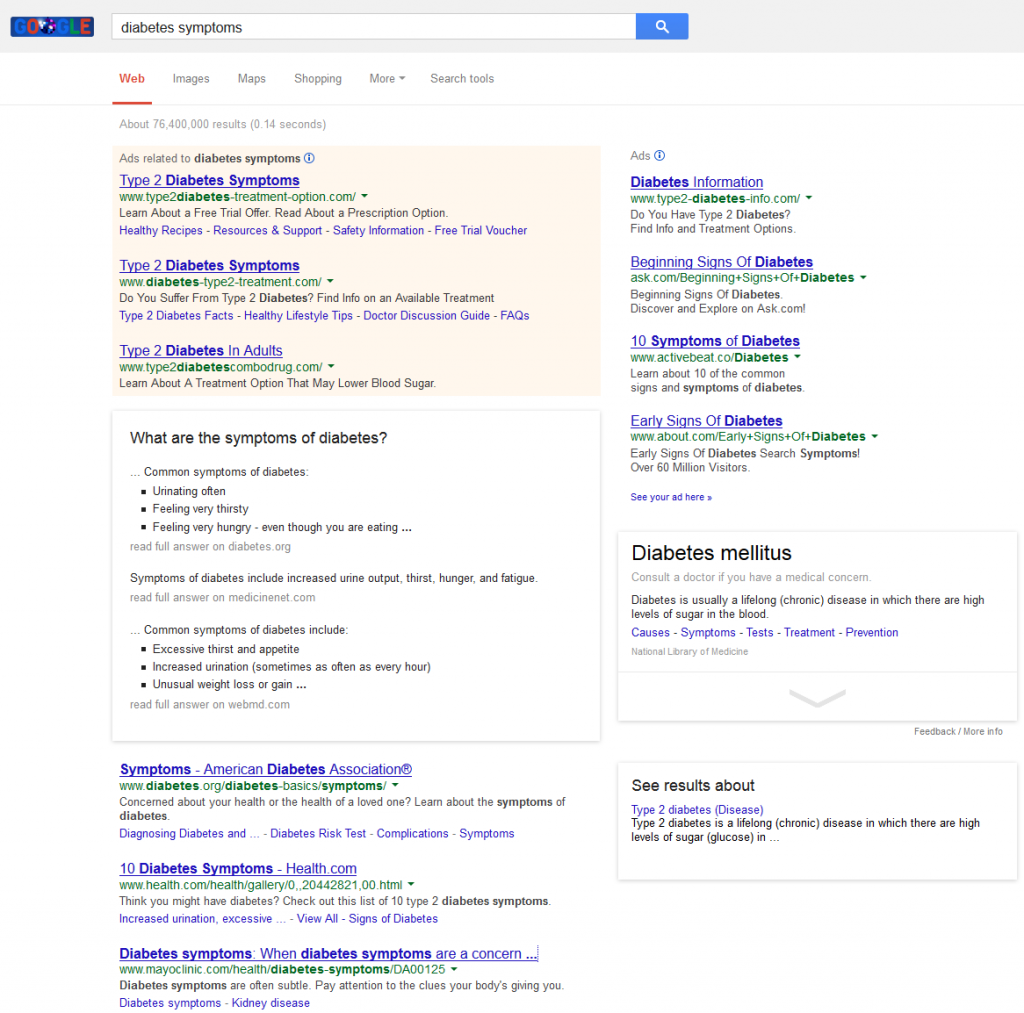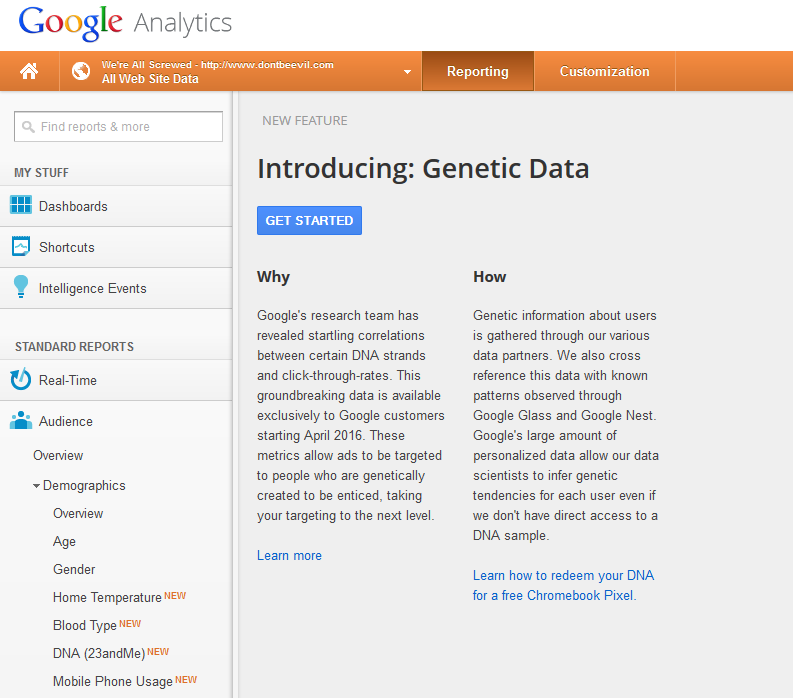So the mysterious link network that Matt Cutts has been referencing turned out to not be a link network at all.
Blogging platform/community MyBlogGuest received the death notice from Google this morning and the site is no longer appearing for any branded or non-branded searches in Google’s first few pages.
On one hand, it’s a surprising move by Google. MyBlogGuest is much different from BuildMyRank or the handful of foreign link networks that were nuked in the past few weeks. It’s a step in a more aggressive, investigative direction from the types of penalties Google has handed out before for obvious link networks.
Going after MyBlogGuest is like punishing Twitter because people arrange drug deals via direct message.
MyBlogGuest was a place where independently owned and operated websites exchanged content and ideas. No post ever published via MyBlogGuest was done so without full editorial approval.
On the other hand, MyBlogGuest had become more heavy-handed recently in taking control over the websites that participating in the community. Google probably doesn’t care about providing a forum or platform for people to link up but when you start bullying people into removing rel=nofollow you have probably crossed a line. That is the type of thing that will get the Google Police to your doorstep.
Still, this is a big departure from previous actions that Google has taken. For the most part, all posts distributed via MyBlogGuest were:
- Unique
- Editorially reviewed and approved by site owners
- Void of objectionable anchor text
- Watched closely by community moderators
MyBlogGuest was world’s better than the BMR model where spun content and anchor text were greeted with open arms and chaos reigned. Real, well-known SEO minds were running the site.
Moreover, the site was so well-regarded just a couple of years ago and recommended by everybody as the best, safest and most white-hat way to build links.
From founder Ann Smarty, MyBlogGuest provides a platform for those seeking to write and receive guest posts. The service is relatively simple, but potentially quite powerful….I’ll be surprised if some Silicon Valley style startups don’t pop up to copy this model.
Google is starting to make a habit of telling and encouraging users to do one thing and then banishing them from search results a couple of years later. Don’t get me wrong, a lot of that is self-inflicted by SEOs but what does Google think is going to happen?
There’s an endless cycle with SEO. Smart marketers identify a nice, scalable way to gain backlinks without making too many people mad. Eventually, other people catch on and scale the process to death until it annoys people and Google has to make an adjustment.
You can banish MyBlogGuest but it doesn’t really fix the problem of an algorithm with a handful of inefficiencies that can make you rich if you figure out how to exploit them. Guest blogging or MyBlogGuest is a symptom of much bigger issues in the world of search.
A year or two from now, we’ll probably be having similar discussions about the merits of infographics or visual assets or video blogs or social buttons or who knows what.
SEO is an endless cycle of cat and mouse and Google will change the rules whenever they want. One of the scariest things about SEO is that you not only have to worry about links you build last week or last year…but also those from several years ago and where they fit with Google’s ever-changing rules.
More than FUD
While Google’s approach with MyBlogGuest seems to have become more aggressive with this move, I’ve still seen a lot of people claiming FUD and nothing more.
I disagree.
I first used MyBlogGuest back in 2012 for a few side projects. I hadn’t touched them much since this and the sites backlink profiles were fairly reliant on posts from the earlier days of MyBlogGuest. Good, unique content and no crazy anchor text, but MyBlogGuest helped find homes for the posts.
Those sites all got hammered with sitewide penalties last night. I’ve read a few other reports of similar penalties. Matt Cutts had a tweet that seemed to confirm this.
@n2tech when we take action on a spammy link network, it can include blogs hosting guest posts, sites benefiting from the links, etc.
— Matt Cutts (@mattcutts) March 20, 2014
So this is definitely more than FUD. Nuking the MyBlogGuest.com domain would have been FUD, but dishing out sitewide penalties to the publishers and writers on the community is more than that and a sign of things to come.
Sure, you can still rank with a well thought out private blog network or through some super high quality guest posting but for all the critizing of Google I’ve done in the past, I am taking them seriously on this one.
A few other thoughts:
– Classic Google move to launch this during Pubcon. There is a huge FUD element to the timing of the whole thing and it feels like a shock and awe move by Google.
– There are two big groups in SEO right now and they seem to be on opposite sides when it comes to MyBlogGuest. Both groups of SEOs know that you need links to rank. One group is open about this, prefers the term SEO and will still talk about scalable and actionable link building in 2014. The other group believes in links but focuses on non-SEO related strategies to earn them.
It’s a subtle difference but the group that still highly values link building sees MyBlogGuest and can empathize with those who used it to build links.
The later group celebrates every new “link network” that is taken down in hopes that it will validate their content/inbound focus.
The right place to be right now is probably a mixture of both of those schools of thought, but if people are going to take sides (and they are from what I’ve read) these appear to be the two camps when it comes to MyBlogGuest.
– With every penalty, link network bust and site takedown, my fear of Google’s power only grows. Remember – a penalty doesn’t just hurt a bunch of websites on a “link network.” It hurts real businesses, real employees and people who know nothing about SEO, anchor text or Penguin. Google’s influence extends far beyond the SERPs and super aggressive moves like this should serve as a reminder of how far down they’ve planted roots into our world.



